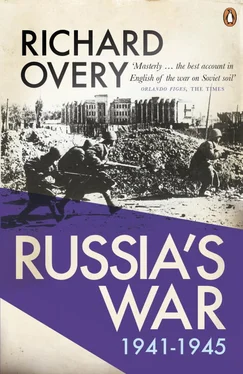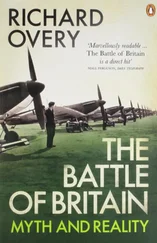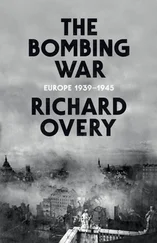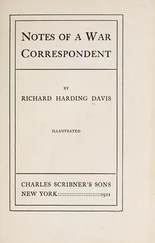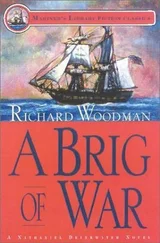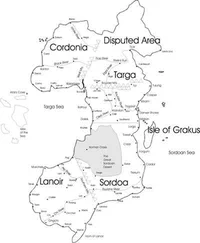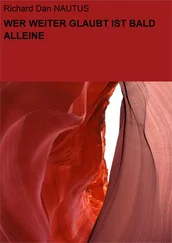Richard Overy - Russia's War
Здесь есть возможность читать онлайн «Richard Overy - Russia's War» — ознакомительный отрывок электронной книги совершенно бесплатно, а после прочтения отрывка купить полную версию. В некоторых случаях можно слушать аудио, скачать через торрент в формате fb2 и присутствует краткое содержание. Город: London, Год выпуска: 1999, ISBN: 1999, Издательство: Penguin Books Ltd, Жанр: military_history, на английском языке. Описание произведения, (предисловие) а так же отзывы посетителей доступны на портале библиотеки ЛибКат.
- Название:Russia's War
- Автор:
- Издательство:Penguin Books Ltd
- Жанр:
- Год:1999
- Город:London
- ISBN:978-0-14-192512-7
- Рейтинг книги:4 / 5. Голосов: 1
-
Избранное:Добавить в избранное
- Отзывы:
-
Ваша оценка:
- 80
- 1
- 2
- 3
- 4
- 5
Russia's War: краткое содержание, описание и аннотация
Предлагаем к чтению аннотацию, описание, краткое содержание или предисловие (зависит от того, что написал сам автор книги «Russia's War»). Если вы не нашли необходимую информацию о книге — напишите в комментариях, мы постараемся отыскать её.
[Contain tables. Best viewed with CoolReader.]
Russia's War — читать онлайн ознакомительный отрывок
Ниже представлен текст книги, разбитый по страницам. Система сохранения места последней прочитанной страницы, позволяет с удобством читать онлайн бесплатно книгу «Russia's War», без необходимости каждый раз заново искать на чём Вы остановились. Поставьте закладку, и сможете в любой момент перейти на страницу, на которой закончили чтение.
Интервал:
Закладка:
Tiorkin snores. There’s no more to it.
He just takes things as they come.
‘I belong, and well I know it.
Russia needs me. Here I am.’ 10
The history of the war cannot be understood if these elements in Soviet life are ignored. Material explanations of Soviet victory are never quite convincing. It is difficult to write the history of the war without recognizing that some idea of a Russian ‘soul’ or ‘spirit’ mattered too much to ordinary people to be written off as mere sentimentality, however mundane or banal or brutalizing was the real day-to-day experience of war.
Other striking aspects of the Soviet war effort are the continuities with an older past, which Stalinist modernization did not eliminate. Much of what is taken to be a product of the Stalinist system was part of Russian tradition, modified, enlarged or transposed, but still recognizable. Some of those continuities are more trivial. The famous Potemkin villages of Catherine the Great’s Russia, which were painted and cleaned up for important visitors to demonstrate the cheerful progressiveness of the autocracy, have more-than-faint echoes in the model farms and factories decked out to show Western well-wishers the smiling face of Communism. When the American politician Henry A. Wallace visited the gold-mining centre at Magadan in the Soviet far east in 1944, he saw nothing of the brutal forced-labour regime that kept the mines going. In Irkutsk Wallace gave a speech laden with a terrible irony: ‘Men born in wide, free spaces will not brook injustice and tyranny. They will not live even temporarily in slavery.’ 11
Other continuities are more striking and more significant. The regime of forced prison labour, deportations and exile was not a Stalinist invention, not even a Soviet one. For 300 years imperial Russia exploited slave labour. The state used criminals, rebels, even tax-dodgers, to build roads and railways, to man mines in the harsh climate of the northern empire, to construct cities and fortifications. During the nineteenth century thousands were exiled to the sparsely populated reaches of Siberia, where they were left with nothing and died in their thousands. In the early twentieth century political dissidents began to join the criminals in large numbers. Between 1905 and 1914 the numbers sentenced to hard labour ( katorga ) rose fivefold as the political authority of the Tsarist regime began to crumble. 12The world of the secret policeman and the zek, the hapless slave labourer, long predated the coming of revolution in 1917. Stalin did to his people what Russia’s rulers had always done.
This does not make it any easier to forgive the terror and the atrocities of the 1930s and the 1940s, but it does help to make more comprehensible what otherwise seems inexplicable. Perhaps Western opinion has been more shocked by the revelations of Stalinist oppression because it contrasted so sharply with the romantic image of a young proletarian state struggling to impose social justice, a view that seduced western Communists before the war. Stalin did fight a war against his own people, but not simply because he was a Bolshevik. It would not be an exaggeration to say that every Russian ruler has been at war with the people, partly because the Russian empire was a multinational empire built on conquest, partly because governing Russian society always required some element of terror to hold the vast, peasant-based, anarchic community together.
The situation was no different in war. The final publication in 1988, after almost half a century of official silence, of Stalin’s notorious wartime Orders 270 and 227 (which authorized savage reprisals against those who fell into captivity, and their families, and against those who retreated rather than fight) evoked outrage as a manifestation of Stalinist tyranny at its most irrational and vicious. Yet military life had always been harsh in Russia. Discipline was arbitrary and bloody. The Tsarist war effort between 1914 and 1917 ushered in ‘penal battalions’, punishment units for deserters and criminals which were sent on the worst missions. The army was kept at the front in the First World War with what came to be called ‘blocking units’ in the Second, whose job was to prevent desertion and banditry. During the civil war that followed the revolution in 1917, military discipline was so difficult to maintain for both sides that methods were adopted which easily stand comparison with Stalin’s. A harsh regime produced a brutalized soldiery. The atrocities of the civil war did not cause the atrocities of the later conflict, but many of the Red Army officers who rose to command positions after 1941 had been junior officers in the civil war and had witnessed or perpetrated horrors, against the enemy, against peasant rebels, even against their own men.
Most of this story lies outside the scope of Russia’s War . It is recalled here only in order to put Stalin, Stalinism and the ‘Great Patriotic War’ into the context of Russia’s past. The revolutionaries of 1917 inherited that complex legacy, and the state they constructed on the ruins of Tsarism owed more to that inheritance than they would have wished. Modernization continued during the 1920s and 1930s; indeed, without it the war with Germany would have gone very differently. Russia’s war between 1941 and 1945 was a rich amalgam of the modern and the ancient. Stalin chose to fight the war not as a simple expression of socialist patriotism. The propaganda war was fought using heroes of the past viewed through red-tinted spectacles. Aleksandr Nevsky, the thirteenth-century Muscovite prince who defeated invasion by the Teutonic Knights, was made at the end of Sergei Eisenstein’s film to say words which were reproduced throughout the war: ‘He who comes to us with the sword, shall perish by the sword. On that the Russian land has stood and will stand.’ 13
1
The Darkness Descends:
1919–1937
He is the new Genghis Khan. He will slaughter us all.
Nikolai Bukharin, 1928It is October in Russia. Three Army Groups are forcing their way against weak defences towards Petrograd and Moscow. They treat the local population with brutality, burning villages, slaughtering the inhabitants. They capture one city after another: Kiev, Odessa, Voronezh, Orel. By mid-October one Army Group is within striking distance of Moscow, approaching Tula; another is encircling Petrograd, preparing to seize the city. They are harassed by partisan bands. In Moscow the Government panics. Plans are laid to move eastward to a safer haven in the Ural mountains. Local workers are forced into labour battalions to dig trenches and barricades to keep the enemy at bay. In Tula local Communists force the city’s population at the point of a gun to prepare primitive fortifications, while their families are held hostage. Improvised forces are gathered together for a last-ditch defence. A successful counter-offensive saves Moscow. The fighting is murderous, high casualties on both sides, little quarter given. The Government stays on in Moscow; the Red Army of workers and peasants, bullied by Communist commissars and security police, finally triumphs over the forces of reaction.
This is a thoroughly familiar story, but it is not 1941. The year is 1919, and the threat comes not from the three German Army Groups that powered across the Soviet Union after the attack launched on 22 June 1941, but from the armies of the counter-revolutionaries in the long and sanguinary civil war that followed the Bolshevik Revolution of October 1917. The story is retold here because the civil war was central not only for the establishment of the Soviet state, but in shaping the attitude to war of Soviet leaders and the future commanders of the Red Army that fought Hitler. Fighting among the troops that drove back the threat to Moscow in 1919 was the young Georgi Zhukov, who became the most celebrated soldier of the Second World War. He was a cavalryman in the 1st Red Cavalry Corps, which supplied not only Zhukov, but Marshal Kliment Voroshilov, the Commissar of Defence for fifteen years under Stalin; Marshal Semyon Timoshenko, his successor in 1940; and the colourful but incompetent cavalryman, Semyon Budyenny, who became the commander of Soviet cavalry in 1943. 1
Читать дальшеИнтервал:
Закладка:
Похожие книги на «Russia's War»
Представляем Вашему вниманию похожие книги на «Russia's War» списком для выбора. Мы отобрали схожую по названию и смыслу литературу в надежде предоставить читателям больше вариантов отыскать новые, интересные, ещё непрочитанные произведения.
Обсуждение, отзывы о книге «Russia's War» и просто собственные мнения читателей. Оставьте ваши комментарии, напишите, что Вы думаете о произведении, его смысле или главных героях. Укажите что конкретно понравилось, а что нет, и почему Вы так считаете.
